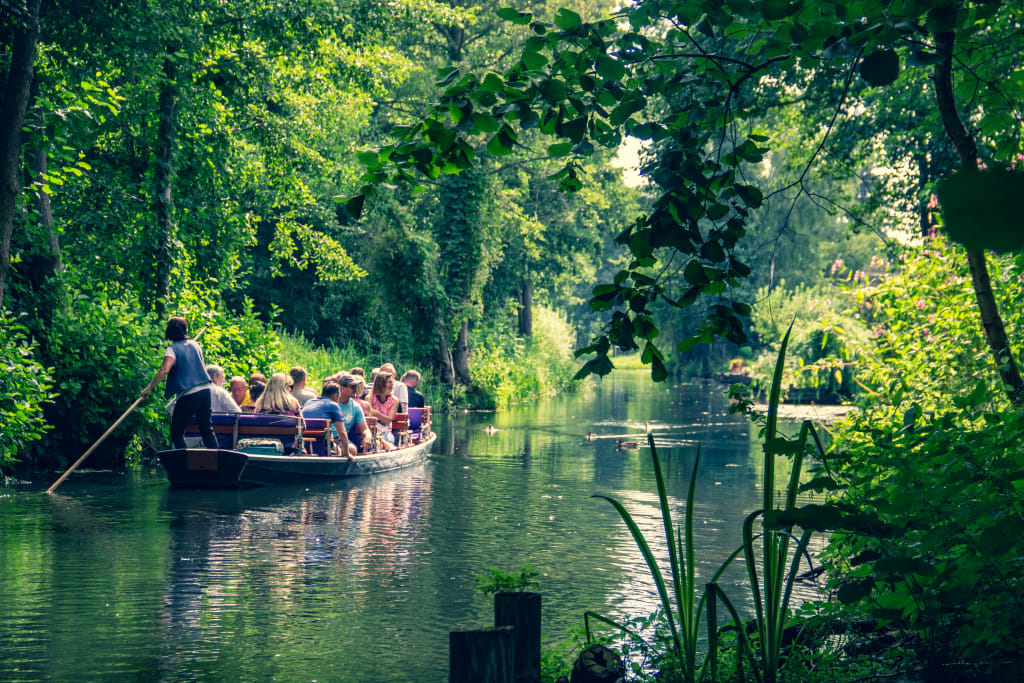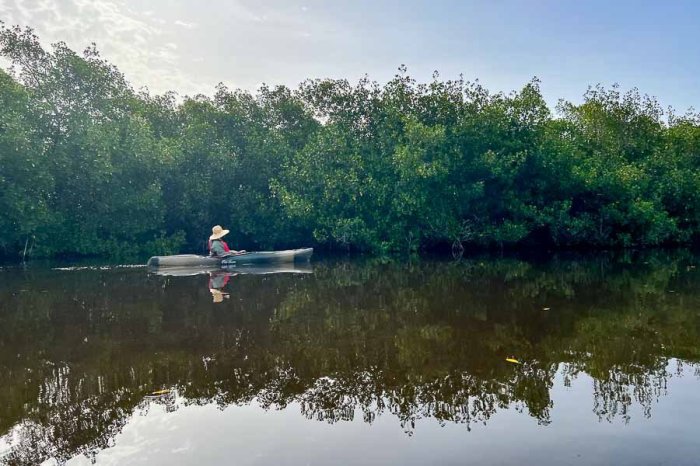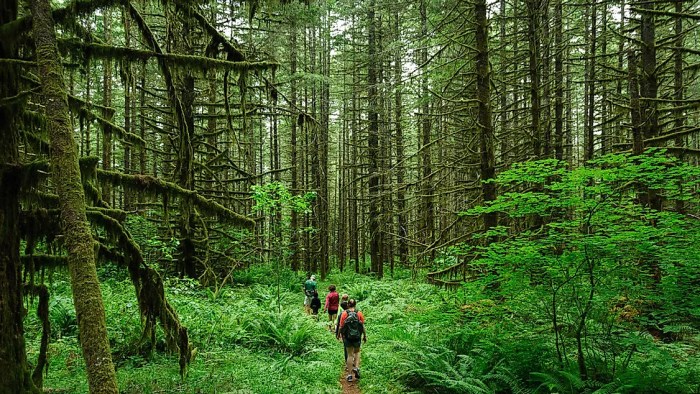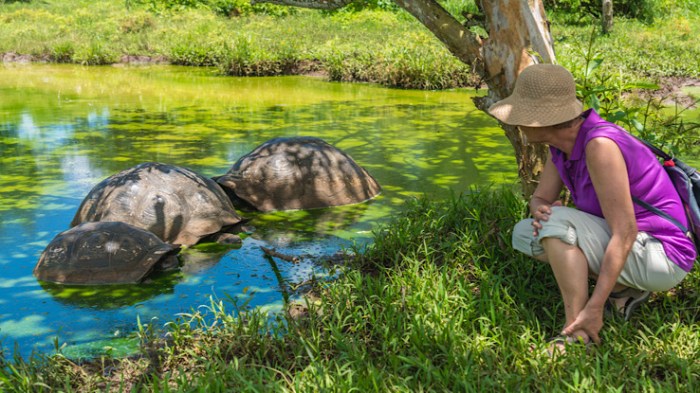Eco Tours Near Me Your Sustainable Adventure Awaits
Eco tours near me offer a unique opportunity to explore the natural beauty and cultural richness of your surroundings while minimizing your environmental impact. These tours prioritize sustainability, contrasting with traditional tours that often focus on mass tourism. They often include activities like hiking, wildlife viewing, and cultural immersion, immersing you in the local environment and community.
Finding local eco-tour operators is straightforward. Researching operators’ commitment to sustainability, including their environmental policies and community involvement, is crucial. This ensures you’re choosing a company aligned with your values. Look for certifications and read reviews to help you select the right tour. Expect engaging experiences, tailored itineraries, and knowledgeable local guides.
Defining Eco-Tours Near Me

Source: multiscreensite.com
Eco-tours offer a unique travel experience, blending exploration with environmental responsibility. They’re designed to immerse you in natural landscapes and local cultures while minimizing your impact on the environment. This approach fosters a deeper appreciation for the destination and its inhabitants, encouraging sustainable practices.
Eco-tours differentiate themselves from traditional tours through a commitment to environmental stewardship. Traditional tours often prioritize sightseeing and entertainment, sometimes at the expense of local ecosystems and communities. Eco-tours, conversely, prioritize responsible tourism, working with local guides and businesses to ensure minimal disruption and maximize positive contributions.
Sustainability in Eco-Tourism
Sustainability is paramount in eco-tourism. It involves minimizing environmental damage, supporting local economies, and respecting cultural heritage. Eco-tours prioritize practices that reduce carbon footprints, conserve resources, and promote biodiversity. This approach ensures that the destinations remain vibrant and accessible for future generations.
Characteristics of Eco-Tours
Eco-tours are distinguished by several key characteristics. They emphasize minimizing environmental impact, supporting local communities, and fostering cultural understanding. Crucially, eco-tours prioritize the well-being of the environment and local people over mere profit or tourist gratification.
Activities in Eco-Tours
Eco-tours often incorporate a range of activities that encourage engagement with nature and local cultures. Hiking through scenic trails, observing diverse wildlife, participating in cultural immersion programs, and learning about local ecosystems are common examples. These activities allow travelers to experience the destination’s natural beauty and cultural richness firsthand.
Comparison of Eco-Tours with Other Tour Types, Eco tours near me
| Tour Type | Focus | Impact | Example Activities |
|---|---|---|---|
| Eco-Tour | Environmental stewardship, local community support, and cultural understanding | Minimal environmental impact, positive contribution to local economies | Hiking, wildlife viewing, cultural immersion, and sustainable agriculture tours |
| Adventure Tour | Physical challenges and thrilling experiences | Potential for environmental impact depending on practices | Rock climbing, white-water rafting, zip-lining |
| Cultural Tour | Immersion in local traditions and customs | Potential for cultural exchange and appreciation | Visiting historical sites, attending local festivals, and learning local crafts |
| Historical Tour | Exploration of historical sites and events | Learning about past events and cultures | Visiting historical landmarks, museums, and learning about local history |
Identifying Local Eco-Tour Operators
Finding local eco-tour operators is a crucial step in arranging a fulfilling and sustainable experience. This involves researching operators committed to environmental protection and responsible tourism practices. Understanding their operations and choosing the right operator ensures a positive impact on the local environment and community.
Local operators are often the best source of in-depth knowledge about the area and its unique ecosystems. They possess a strong understanding of the local environment, allowing them to guide visitors in a manner that minimizes their impact and maximizes their learning experience.
Potential Local Operators
Several businesses in specific regions specialize in eco-tours. Examples include local nature centers, hiking clubs, or dedicated environmental organizations. These organizations frequently offer guided walks, wildlife viewing tours, or educational programs focused on local ecosystems. Furthermore, some local businesses or community groups might offer custom eco-tours tailored to specific interests or needs. This allows for a personalized and engaging experience for participants.
Factors to Consider When Choosing an Operator
Choosing an eco-tour operator requires careful consideration of several key factors. A reputable operator with a proven track record of environmental responsibility is essential. Their commitment to sustainability, evidenced by their practices and policies, should be paramount. Similarly, the operator’s experience and knowledge of the local area will significantly influence the quality of the tour. This includes their understanding of local flora, fauna, and ecosystems.
Criteria for Selecting Eco-Tour Operators
Evaluating eco-tour operators based on specific criteria helps ensure a sustainable and enriching experience. The presence of relevant certifications, such as those related to sustainable tourism, is a significant indicator of commitment. Likewise, clear environmental policies, demonstrating a dedication to minimizing environmental impact, are vital. Finally, the operator’s community involvement, evidenced by partnerships with local organizations or support for local initiatives, further enhances the tour’s positive social impact.
| Criteria | Explanation |
|---|---|
| Certifications (e.g., Green Globe, EarthCheck) | These certifications indicate adherence to specific environmental standards and practices. |
| Environmental Policies | Policies should articulate the operator’s commitment to minimizing their environmental footprint, such as waste management, water conservation, and energy efficiency. |
| Community Involvement | Operators actively supporting local communities, such as employing local guides or contributing to local initiatives, demonstrate a commitment to responsible tourism. |
Finding Local Eco-Tour Operators Online
Finding local eco-tour operators online is straightforward. Search engines like Google can be used to find operators in a specific region. Websites dedicated to tourism and nature-related activities often list local operators, as do social media platforms where local businesses advertise their services. Furthermore, reviewing online reviews and testimonials can provide valuable insights into the operator’s reputation and service quality.
Describing Eco-Tour Experiences: Eco Tours Near Me

Eco-tours in our region offer a unique opportunity to connect with nature and learn about local ecosystems. These tours are carefully designed to minimize environmental impact while maximizing educational value. Participants can immerse themselves in the region’s natural beauty and gain a deeper appreciation for its unique biodiversity.
Typical eco-tours provide a blend of guided exploration, hands-on learning, and environmental awareness. They’re tailored to highlight the region’s specific natural features, from pristine forests to diverse wildlife habitats.
Typical Experiences Offered
Eco-tours often incorporate guided nature walks, allowing participants to observe flora and fauna in their natural environment. This can include birdwatching, spotting local wildlife, and learning about the region’s unique ecosystems. Some tours may also feature educational presentations by local experts, offering insights into the area’s history, ecology, and cultural significance. Participants may also engage in activities like kayaking, hiking, or camping, depending on the specific tour.
Duration and Itinerary
Eco-tours vary in duration, ranging from half-day excursions to multi-day adventures. A common half-day tour might involve a guided walk through a nature reserve, focusing on identifying specific plant and animal species. A multi-day tour could encompass a wider range of activities, such as camping in a national park, exploring various ecosystems, and attending presentations by local experts. The itinerary will typically include transportation, guided activities, and breaks.
Role of Local Guides
Local guides play a crucial role in the success of eco-tours. Their deep knowledge of the local environment, including the region’s flora, fauna, and history, enriches the experience for participants. Furthermore, their commitment to environmental stewardship is critical in preserving the natural beauty of the region. They often act as ambassadors, fostering respect and understanding for the local environment and its inhabitants. They also often help in identifying the best spots for wildlife viewing.
Environmental Impact
Eco-tours are designed to minimize their environmental impact. Operators often use sustainable transportation methods like electric vehicles or bicycles, minimizing carbon emissions. They also promote responsible waste management, ensuring minimal litter and pollution. The guides often educate participants on conservation practices, reinforcing the importance of environmental protection. The careful selection of tour routes and activities helps minimize disturbance to wildlife and sensitive ecosystems.
Overview of Eco-Tour Options
| Destination | Activities | Duration |
|---|---|---|
| Coastal Wetlands | Birdwatching, kayaking, and nature walks | Half-day |
| Mountain National Park | Hiking, wildlife spotting, and cultural presentations | Full-day/Multi-day |
| Rainforest Reserve | Guided walks, nature photography, and presentations on biodiversity | Full-day/Multi-day |
Highlighting Eco-Friendly Practices
Eco-tours offer a unique opportunity to experience nature while contributing to its preservation. They foster a deeper appreciation for the environment and often play a vital role in supporting local communities and conservation efforts. This section details the eco-friendly practices employed by responsible operators, highlighting their commitment to sustainability.
Conservation Efforts
Eco-tours frequently partner with local conservation organizations, providing direct support to their initiatives. This collaboration often takes the form of financial contributions, volunteer opportunities for tour participants, and increased awareness among tourists about local environmental issues. By engaging with local communities and conservation organizations, eco-tours contribute to the long-term health and sustainability of the ecosystems they visit.
Eco-Friendly Practices by Operators
Many eco-tour operators actively promote sustainable practices throughout their operations. These include reducing their carbon footprint through the use of fuel-efficient vehicles, minimizing waste generation, and using locally sourced supplies whenever possible. They also prioritize responsible wildlife viewing practices to minimize disturbance to local fauna. This dedication to minimizing environmental impact is a key aspect of a truly responsible eco-tour experience.
Sustainable Transportation Options
Eco-tours often employ various sustainable transportation methods. For example, some operators use electric or hybrid vehicles for internal transport, reducing their emissions. In many cases, walking, cycling, or using horse-drawn carriages is used for shorter distances. These options help minimize the environmental footprint of the tour while enhancing the experience for participants. For longer distances, they may utilize public transport or consider sustainable alternative transportation options when available.
Waste Management Strategies
Eco-tours employ a variety of waste management strategies to minimize their impact on the environment. They often implement strict waste segregation policies, ensuring that recyclable and non-recyclable materials are properly sorted. Operators may also partner with local recycling facilities or establish composting systems where possible. Some tours even engage in cleanup initiatives in the areas they visit, promoting responsible waste management practices for all.
Eco-Friendly Accommodations
Many eco-tours partner with eco-friendly accommodations that prioritize sustainability. These accommodations often use renewable energy sources, employ water-efficient fixtures, and promote local sourcing for building materials. Examples of such accommodations include lodges built with locally sourced timber, hotels utilizing solar panels, or campsites that adhere to Leave No Trace principles. These eco-conscious choices align with the overarching ethos of responsible travel and contribute to a more sustainable experience for all.
Illustrating the Impact of Eco-Tours

Source: srilankaecotourism.lk
Eco-tourism offers a powerful means of fostering positive change, not just for the environment but also for the local communities that embrace it. By integrating sustainable practices and prioritizing community well-being, eco-tours can yield significant economic and social benefits. These benefits extend beyond the immediate tourist experience, creating a ripple effect that improves the lives of residents and safeguards the region’s future.
The economic and social benefits of eco-tourism are often intertwined. Successful eco-tour operations are designed to create value for both visitors and the local community. This value extends to the local economy through job creation, cultural preservation, and environmental protection. By supporting responsible tourism, we can ensure that the natural and cultural heritage of the region thrives for generations to come.
Positive Effects on Local Communities
Eco-tourism initiatives often lead to a noticeable improvement in the quality of life for local communities. These programs can directly contribute to infrastructure development, such as improved transportation and communication networks. Additionally, eco-tours can create opportunities for local entrepreneurs to establish small businesses that cater to the needs of visitors, generating income and boosting local economies.
Economic Benefits for Local Areas
Eco-tours generate substantial economic benefits for local communities. Increased tourist spending directly translates into higher revenue for local businesses, from hotels and restaurants to craft shops and tour operators. This increased economic activity fosters job creation and higher incomes for residents. For example, a thriving eco-tour industry can attract investment in local infrastructure and create a virtuous cycle of growth and prosperity.
Job Creation in the Region
Eco-tours directly contribute to job creation within the local community. These opportunities range from guiding and tour leading to hospitality roles, such as chefs, housekeepers, and customer service representatives. Furthermore, the demand for locally-sourced goods and services expands job opportunities in sectors like agriculture, crafts, and local transportation. The need for guides, cooks, and other support staff further stimulates employment growth.
Cultural Exchange and Understanding
Eco-tours promote cultural exchange by bringing people from diverse backgrounds together. Visitors learn about the unique traditions, customs, and history of the local community, fostering respect and understanding. Residents gain exposure to different cultures and perspectives, broadening their horizons and enriching their understanding of the world. Such exchange often leads to appreciation and tolerance, contributing to a more harmonious and inclusive society.
Importance of Responsible Tourism Practices
Responsible tourism practices are critical for the long-term sustainability of eco-tours. This involves minimizing environmental impact, respecting local cultures, and ensuring fair compensation for local communities. By adhering to ethical guidelines, eco-tour operators can maximize the positive effects of tourism while minimizing negative consequences. For instance, the use of sustainable transportation, support for local businesses, and involvement in community projects are all crucial aspects of responsible tourism.
Presenting Eco-Tour Destinations
Discovering and exploring the natural wonders and cultural heritage of our region is a key component of responsible tourism. Eco-tours offer a unique opportunity to immerse oneself in the beauty of the environment while supporting sustainable practices. By carefully selecting destinations, we can ensure a positive impact on both the environment and the local communities.
The following destinations exemplify the rich tapestry of natural and cultural experiences available through eco-tours in the region. Each destination offers a distinct set of attractions, from breathtaking landscapes to historical sites and diverse wildlife. These destinations have been carefully selected to showcase the region’s biodiversity and cultural richness, while prioritizing sustainability and ethical tourism practices.
Potential Eco-Tour Destinations
This section highlights potential destinations suitable for eco-tours, taking into account their unique natural features, wildlife, cultural heritage, and historical significance.
Natural Features and Wildlife
Each destination possesses a unique collection of natural landscapes. These range from lush forests and serene waterways to rugged mountains and coastal areas, fostering diverse habitats that support a rich array of wildlife. Understanding the local ecosystems and the delicate balance of the flora and fauna is crucial for responsible tourism. For example, the coastal regions might feature migrating bird species, while the mountainous areas could support endemic mammal populations.
Cultural Heritage
Many destinations boast rich cultural histories, with indigenous communities and traditions contributing significantly to the region’s identity. These cultural elements can be integrated into eco-tours, providing insights into the local way of life and fostering respect for cultural heritage. This includes traditional crafts, festivals, and storytelling.
Historical Significance
The historical context of a destination provides further depth to the understanding of the region. Many destinations have played significant roles in past events or served as important landmarks. Examples may include historical settlements, archaeological sites, or military installations, each holding a piece of the region’s story.
Destination Overview
| Destination | Unique Attractions | Natural Features/Wildlife | Cultural Heritage | Historical Significance |
|---|---|---|---|---|
| Misty Mountain National Park | Stunning mountain views, diverse flora and fauna, hiking trails. | A variety of bird species, potentially rare mammal populations, and diverse plant life adapted to high altitudes. | Indigenous legends and stories are associated with the mountains, traditional medicinal plant knowledge. | Historically significant as a refuge for indigenous communities and a source of traditional medicines. |
| Coastal Wetlands Sanctuary | Abundant birdlife, unique coastal ecosystems, and opportunities for nature photography. | Migratory bird species, diverse coastal plants and animals, estuaries, and salt marshes. | Traditional fishing practices and coastal rituals, storytelling about the sea. | Historically important for coastal trade routes and as a crucial habitat for wildlife. |
| Ancient Village Ruins | Historical architecture, remnants of past civilizations, opportunities for cultural immersion. | Archaeological discoveries provide insights into past environments and lifestyles. | Traditional crafts, architecture, agricultural practices, and social structures. | The historical center of a significant ancient civilization. |
Creating a Call to Action

Embarking on eco-tours offers a unique opportunity to connect with nature and support sustainable practices. This section provides articles on actions you can take to foster responsible travel and encourage others to join the eco-tourism movement.
Encouraging active participation in eco-tourism is crucial for its long-term success. It’s essential to empower travelers to make informed choices and understand the benefits of direct booking and responsible travel.
Supporting Eco-Tourism
Direct booking with eco-tour operators offers significant advantages. It ensures your contribution directly supports the operators’ commitment to sustainability, enabling them to maintain their eco-friendly practices. This approach allows you to contribute directly to the local economy and support local communities, strengthening their livelihoods.
Benefits of Booking Directly
- Enhanced Transparency: Direct booking provides clearer insights into the tour operator’s sustainability initiatives and commitment to eco-friendly practices. You can understand how your money supports these initiatives.
- Community Impact: Your direct contribution directly benefits the local communities involved in the eco-tour experience, fostering economic growth and community well-being.
- Supporting Sustainable Practices: By booking directly, you’re more likely to encounter operators prioritizing environmental conservation and social responsibility.
- Reduced Costs: Some eco-tour operators may offer discounts or packages when booked directly, making eco-tourism more accessible.
Responsible Travel Practices
Responsible travel practices are integral to minimizing the negative impact of tourism on the environment and local communities. These practices promote cultural sensitivity, environmental awareness, and economic benefits for local communities. For example, choosing to use locally sourced products or supporting locally-owned businesses during your eco-tour directly contributes to these practices.
Eco-Friendly Travel Tips
- Minimize Waste: Bring reusable water bottles, shopping bags, and food containers to avoid single-use plastics and other waste. Encourage tour operators to use sustainable packaging and waste management systems.
- Respect Local Culture: Learn basic phrases in the local language and dress respectfully when visiting cultural sites. Engage with locals respectfully and avoid stereotyping.
- Conserve Water and Energy: Take shorter showers, turn off lights when leaving a room, and use energy-efficient appliances. Promote these practices with your eco-tour operator.
- Support Local Businesses: Purchase souvenirs and meals from local vendors, supporting local economies and crafts.
Encouraging Eco-Tours
Promoting eco-tourism requires a compelling message emphasizing the unique experience and positive impact it offers. Highlighting the adventure, educational value, and social responsibility associated with eco-tours can inspire others to join the movement. Showcase the tangible benefits of eco-tours, such as the preservation of natural habitats and the empowerment of local communities.
Final Wrap-Up
Eco tours near me present a compelling blend of exploration and environmental responsibility. These tours foster a deeper appreciation for the natural world and the local communities. By choosing eco-tours, you actively participate in conservation efforts and contribute to the economic well-being of the region. So, embrace sustainable travel and discover the magic of your local surroundings on an eco-tour. Remember to research, compare options, and book directly with local operators for the most authentic and sustainable experience.





